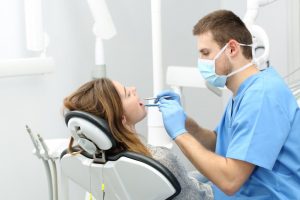Know that dental hygienists and dental collaborators are not the equivalent. Dental hygienists for the most part have a more significant level of aptitude and preparing. They give preventive consideration to dental patients. They for the most part work with dental specialists during serious dental methods. Now and then, they are approved to perform methods like teeth cleaning and other routine systems. Then again, the job of dental collaborators is to help dental specialists, for example, holding the attractions gadget. They generally fill in as the second hand of dental specialists. They likewise set up the patients for treatment and sanitize instruments utilized by dental specialists.
The job of hygienists is significant in the dental office. They are permitted to perform routine dental methodology and some symptomatic tests without direct dental specialist oversight. Likewise, they are approved to expel stores, stains and plaque from teeth. They can likewise analyze gums for potential indications of ailment. A dental hygienist helps the dental specialist by putting sealant or fluoride to cleaned teeth. They likewise take x-beams. Besides, it is their obligation to show dental patients oral cleanliness and appropriate dental consideration. Different obligations of dental hygienists are directed by state law. A few states permit dental hygienists to manage sedatives and evacuate stitches. In different states, hygienists can likewise make impermanent fillings and get ready lab tests.
A level of endorsement from a dental cleanliness school is expected to turn into a dental hygienist. BS in Dental Hygiene is ordinarily a four-year program. While, an Associate’s Degree in Dental Hygiene is a two-year program. There is additionally a Master’s Level in Dental Hygiene. The essential educational program incorporates life structures, physiology, sustenance, pharmacology, microbiology, science, and even histology. The fundamentals of dentistry are additionally remembered for the coursework. Safe activity of dental hardware will likewise be educated to the understudies.
A state permit is required so as to rehearse. Permitting necessities vary from state to state. Practically all states in the U.S. require a degree in Dental Hygiene and pass 2 assessments. The principal test is composed which is led by the American Dental Association. The subsequent one is clinical and for the most part directed by the state. A few states require another assessment. The third assessment covers the lawful perspectives and issues in dental cleanliness.

